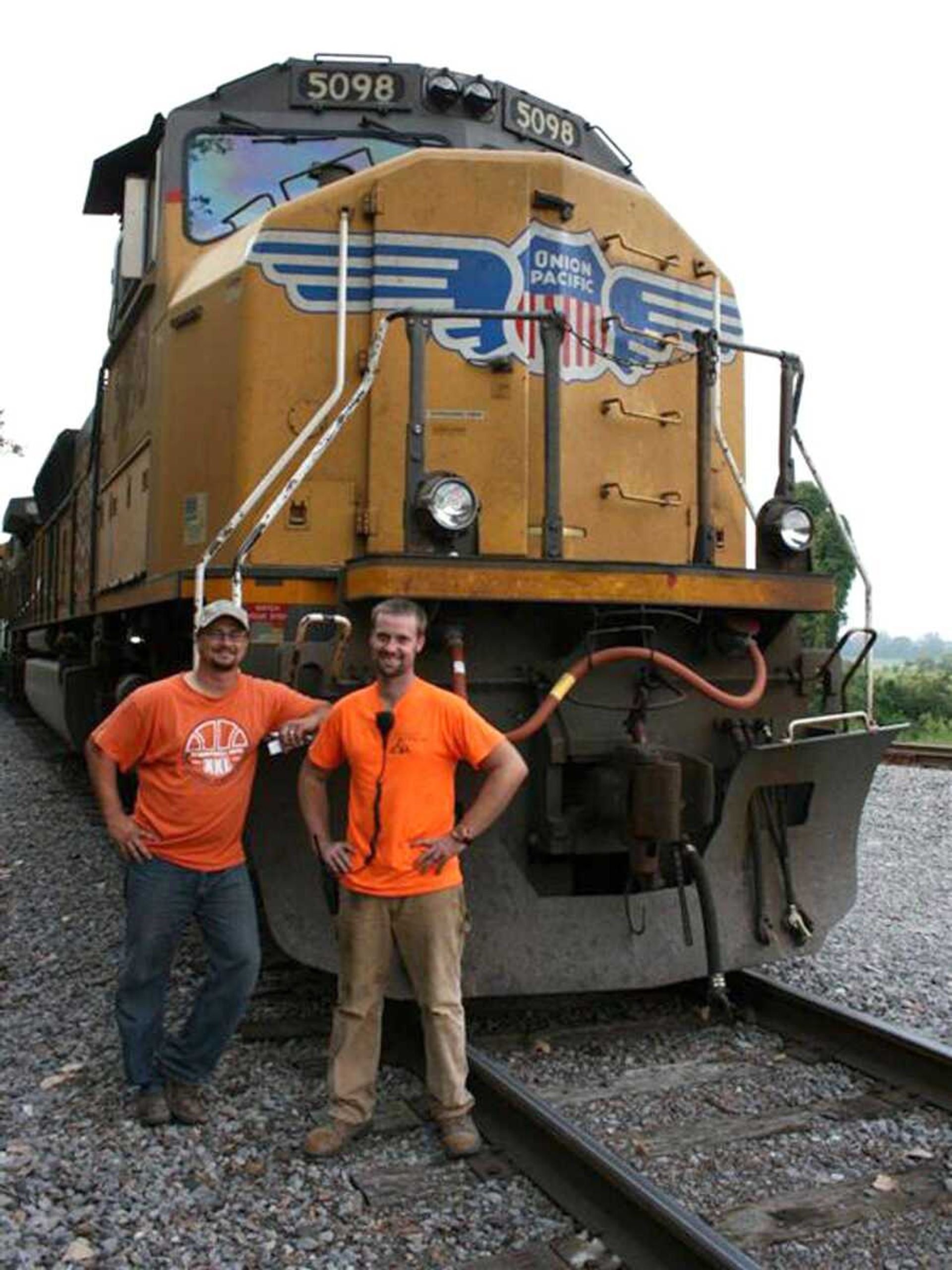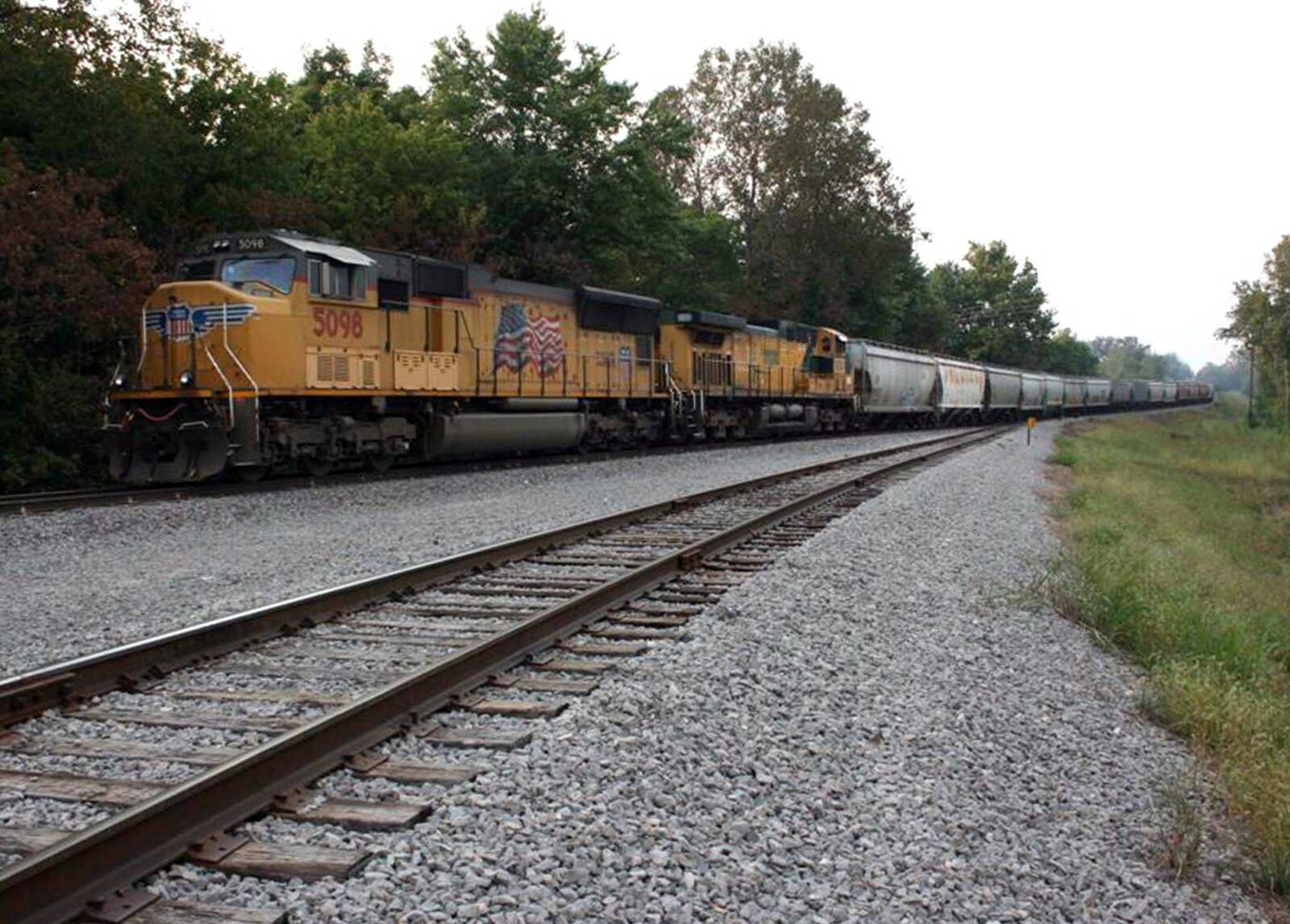Southeast Port Authority accommodates uncommon unit train
The Southeast Regional Port Authority recently experienced the excitement of a unit train stopping to be loaded with corn, then continue on its journey to Iowa. Dan Overbey, executive director of the Southeast Missouri Regional Port Authority, knows that may not sound exciting to the average person. But to those in the railroad business, it's a pretty big deal...
The Southeast Missouri Regional Port Authority recently experienced the excitement of a unit train stopping to be loaded with corn, then continue on its journey to Iowa.
Dan Overbey, executive director of the SEMO Port, knows that may not sound exciting to the average person. But to those in the railroad business, it's a pretty big deal.
Local railroad companies include the Burlington Northern Santa Fe Railway Corp. that runs parallel to the Mississippi River and the Union Pacific Railroad Company that runs out of Scott City.
Trains regularly seen in the area are carload service trains, which usually consist of a variety of train cars from customers carrying a range of products, Overbey said Tuesday.
Carload service trains stop at railroad yards, or switch yards, which are a series of railroad tracks used for storing, sorting or loading railroad cars and locomotives. The trains have to stop to sort and exchange cars before they continue to their destinations.

A unit train is an entire train carrying one product from one origin to one destination, Overbey said. To accommodate a unit train requires a different level of service in the railroad industry, such as a larger facility to be able to load and handle cars faster, he said.
"It was kind of a special thing here to have done that," Overbey said.
Unit trains move at a faster pace because they stay on track and don't stop at switch yards to change trains, cars or to load cargo, which can take up to two days, he said.
Besides the occasional train carrying coal to Sikeston, Mo., or crude oil to the barge terminal in Haiti, Mo., Overbey said most trains in the area are carload service trains.
The circumstances for the unit train's passing through the area are unusual, he said.
Because of drought in 2012, Iowa's corn crop couldn't last throughout 2013, Overbey explained in an email. Because the 2013 harvest already is complete in the South, corn from those states is making its way north. As Iowa's corn ran low, companies there began purchasing Southern corn and having it shipped north via barges and rail, he said.
The train arrived early in the morning of Sept. 16, leaving late on Sept. 18. It took that long to load corn into each car, weigh them and inspect the grain, which determines the corn's price, Overbey said.
Consolidated Grain and Barge at the SEMO Port loaded 75 cars of corn and shipped them to a company in Iowa. Seventy of the cars came as an inbound train, and five cars were on hand.
"Now that they've proven they can do it, it might open the door so they could do it again," Overbey said.
ashedd@semissourian.com
388-3632
Pertinent address:
10 Bill Bess Dr., Scott City, MO
Connect with the Southeast Missourian Newsroom:
For corrections to this story or other insights for the editor, click here. To submit a letter to the editor, click here. To learn about the Southeast Missourian’s AI Policy, click here.






